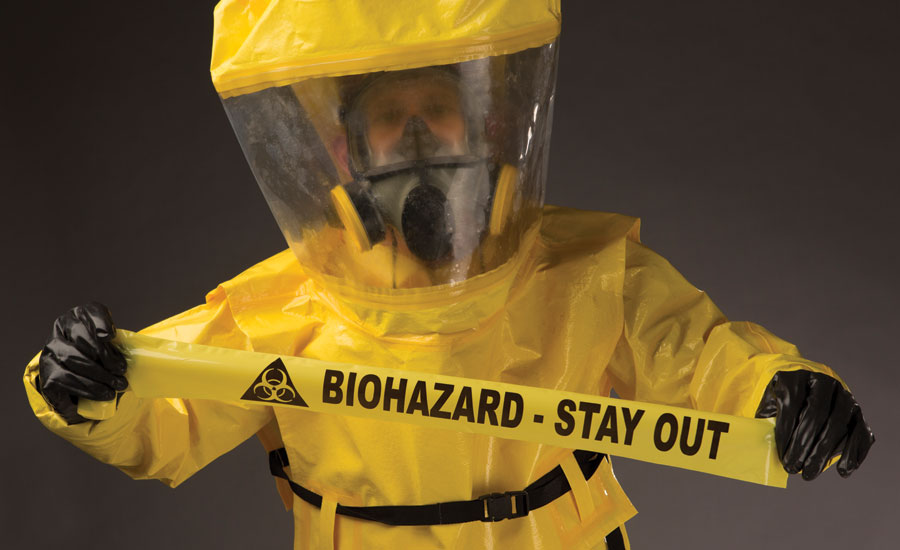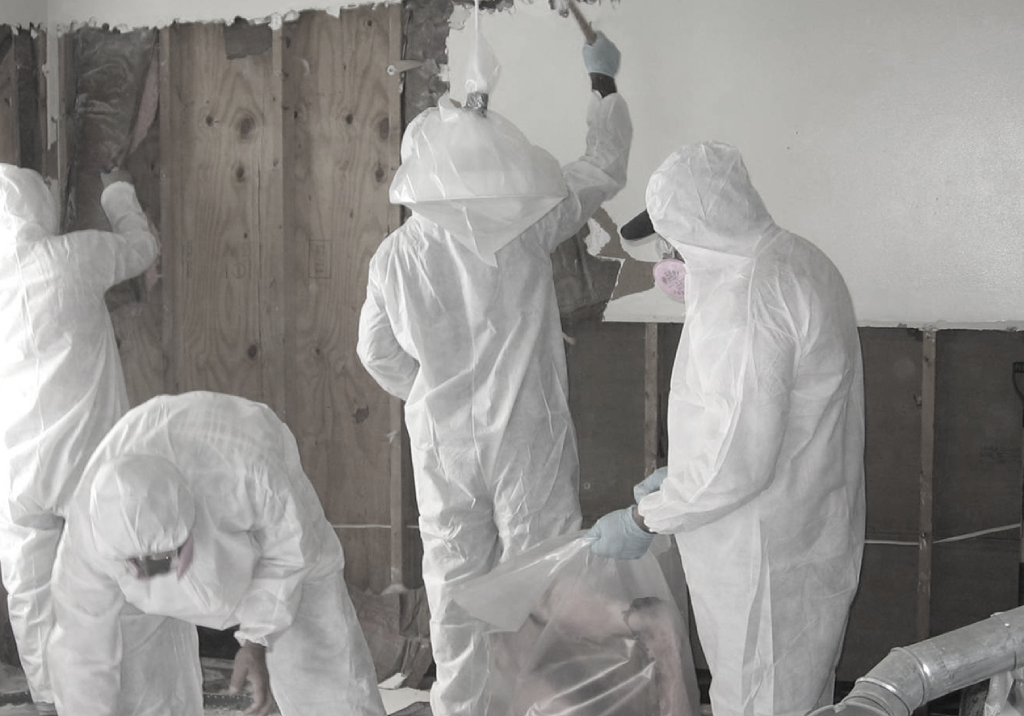Sewage Cleanup Solutions: Rapid and Safe Remediation of Contaminated Areas
Sewage Cleanup Solutions: Rapid and Safe Remediation of Contaminated Areas
Blog Article
Professional Biohazard Clean-up for Crime Scenes, Injury Incidents, and Polluted Rooms
In the realm of professional biohazard cleaning, careful focus to information and adherence to safety methods are paramount. As we delve right into the intricacies of biohazard cleaning for these sensitive atmospheres, a much deeper understanding of the obstacles and critical treatments involved will certainly emerge, losing light on the crucial duty of expert cleaning solutions in recovering safety and security and tranquility of mind.

Relevance of Biohazard Cleaning
Biohazard cleaning following criminal offense scenes and trauma events is crucial for making sure the safety and security of individuals and the environment. When these events happen, they usually leave behind a variety of biohazards such as blood, physical liquids, and other possibly transmittable materials. These compounds can nurture unsafe microorganisms like infections and bacteria, positioning major health and wellness risks otherwise appropriately cleaned up and sanitized.
Professional biohazard cleanup services are trained to deal with these harmful products securely and effectively. They have the necessary equipment, such as individual safety gear and specialized cleansing representatives, to thoroughly decontaminate the impacted locations. By entrusting the cleaning to skilled specialists, individuals can stay clear of exposure to harmful pathogens and avoid the spread of infectious conditions.
Moreover, correct biohazard clean-up is crucial for shielding the atmosphere. Improper disposal of biohazardous materials can infect soil, water sources, and air, positioning a danger to wild animals and the community. By following strict cleaning procedures, experts can guarantee that biohazards are securely gotten rid of and disposed of based on guidelines, lessening the threat of ecological contamination.
Kinds Of Biohazards Encountered
Various dangerous materials commonly experienced in crime scenes and injury events present significant health dangers if not managed properly. Blood and bodily liquids are amongst the most usual biohazards found in these circumstances. These liquids can lug virus such as HIV, hepatitis B and C, and other harmful bacteria. Additionally, tissues, body organs, and body components can likewise posture severe health and wellness risks as a result of possible contamination.
Another type of biohazard usually run into is sharp objects like needles, busted glass, and various other products that can trigger injuries and transfer infections. Chemical hazards are also a concern, as criminal offense scenes may include materials like tear gas, pepper spray, or medicine manufacturing materials that call for specific handling and disposal treatments to stop more injury.
Additionally, mold and bacteria development can happen in rooms where decomposition or long term direct exposure to wetness has actually occurred. These bacteria can release contaminants and irritants into the air, posing respiratory threats to those exposed. On the whole, biohazard cleaning professionals should be qualified and fully equipped to properly deal with these different kinds of unsafe materials to guarantee the security of themselves and others.
Devices and Safety Gear
When resolving the critical job of managing biohazards experienced in criminal activity scenes and trauma occurrences, the usage of proper tools and safety gear is vital to making sure the security of individuals included in the clean-up process. Individual protective equipment (PPE) such as gloves, masks, coveralls, and over at this website safety glasses are vital to protect against straight contact with possibly hazardous compounds. Respirators are crucial when handling biohazards that may end up being airborne, shielding workers from inhaling harmful particles. Specialized cleansing devices like biohazard sharps, anti-bacterials, and bags containers are essential for the safe collection and disposal of infected products. Additionally, sturdy tools such as industrial-grade cleaning representatives, foggers, and ozone generators might be needed to extensively sterilize the afflicted location. Making certain that all equipment is effectively kept, on a regular basis checked, and used according to safety and security standards is important in lessening the risk of exposure to biohazards during clean-up operations.
Cleaning Refine and Methods
Thorough and reliable cleanup of biohazardous products from crime scenes and trauma events needs meticulous focus to information and adherence to stringent safety and security procedures. The cleaning process usually involves several essential steps. At first, the area has to be assessed to figure out the extent of contamination and the suitable cleansing techniques needed. Next off, all biohazardous products, including blood, physical liquids, and tissue residues, should be meticulously eliminated and taken care of in conformity with local policies.
Complying with the removal of biohazardous materials, the affected area undertakes an extensive cleansing and you can check here sanitation procedure. This step entails using specialized cleaning up representatives and equipment to make certain that all traces of contamination are eliminated. After cleansing, the area is subjected to rigorous screening to confirm that it is complimentary and safe of any kind of remaining biohazards.

Purification and Disposal Procedures
To make sure extensive purification and proper disposal of biohazardous materials, following the careful cleaning procedure, details treatments should be meticulously adhered to with rigorous adherence to security procedures. Decontamination includes the removal or neutralization of contaminants to decrease the danger of direct exposure and spread of hazardous compounds. This procedure usually consists of cleansing, sanitizing, and sanitizing the damaged location making use of specialized tools and EPA-approved chemicals.
Once purification is completed, appropriate disposal of biohazardous products is vital to avoid further contamination or damage. Biohazardous waste, such as bodily fluids or blood-soaked materials, have to be meticulously collected, packaged, and identified according to governing standards. ATP testing. These products are then delivered to licensed facilities for disposal through suitable channels, making certain compliance with neighborhood, state, and federal regulations

Final Thought
Finally, expert biohazard cleaning is critical for making certain the effective and secure elimination of hazardous materials from crime scenes, injury incidents, and infected spaces. By making use of customized devices, protective gear, and following correct cleanup processes and techniques, biohazard cleanup teams can efficiently get rid of and sanitize of biohazards, decreasing the risk of direct exposure and harm to people and the environment.
As we delve into the intricacies of biohazard clean-up for these sensitive environments, a deeper understanding of the obstacles and important treatments involved will arise, shedding light on the essential role of specialist cleaning services in restoring safety and read this peace of mind.
Professional biohazard clean-up solutions are trained to take care of these unsafe materials securely and properly. By complying with strict clean-up procedures, professionals can make sure that biohazards are safely gotten rid of and disposed of in accordance with laws, minimizing the risk of ecological contamination.
Generally, biohazard cleaning specialists have to be qualified and well-equipped to properly take care of these numerous kinds of hazardous products to ensure the security of themselves and others.
When addressing the vital task of managing biohazards encountered in crime scenes and injury cases, the usage of correct devices and protective gear is extremely important to ensuring the security of people included in the clean-up process.
Report this page